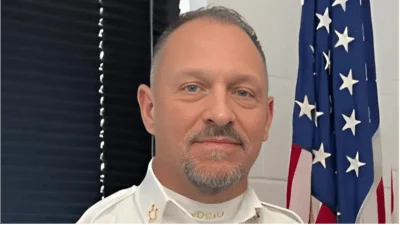C.G.H. Medical Center issued the following announcement on Aug. 14.
Sports are a big part of many kids' lives. And as school starts up again, they may be eager to resume playing. If you are a parent of a young athlete, you may be wondering: Is it safe to play sports during this pandemic?
According to the American Academy of Pediatrics (AAP), how risky any sport is for spreading of the virus that causes COVID-19 depends on how and where it's played.
For example:
Does the sport require a lot of close contact? Close contact sports are higher risk than sports that let players keep a distance.
Do the players share equipment, like bats, balls or sticks?
Is the sport played indoors or outdoors? Indoor sports are more risky than outdoor ones.
How many players are on each team? Smaller numbers are less risky.
Do the teams travel? It's safer to stay within your own community.
Are masks being worn? The more people who wear masks, the better. That includes athletes, coaches and officials.
Depending on the risk factors, it's possible some sports may not resume in the fall.
Steps to help keep everyone safe
The AAP has issued guidelines to help keep players, coaches and families safe. These include:
Parents should check to be sure the activity is approved by their local and state government.
All athletes should undergo a physical exam before resuming sports.
Each child should have their own face mask, hand sanitizer, towel, tissues and water bottle labeled with their name.
Athletes should stay in the car or assigned location until the coach arrives, ready to practice or play.
Everyone should avoid gathering in groups before practice, maintain social distancing and wear a face mask.
Whenever possible, athletes should keep 6 feet away from each other.
Athletes should wear their face masks when on the sidelines, in dugouts or during team chats. However, masks should not be worn during active exercise, in water sports or in sports where masks could accidentally cover their eyes (think gymnastics or cheerleading).
Everyone should avoid high-fives, fist bumps and handshakes. Athletes should not share food or drink with teammates. And no cheering, chanting or singing when closer than 6 feet from each other.
Athletes should store their personal equipment 6 feet away from teammates' equipment.
Athletes should try not to share equipment as much as possible. And they should sanitize their hands before and after using shared equipment.
After practice or games, athletes should sanitize their hands. Face coverings, towels and clothes should be washed. Personal sports equipment should be cleaned.
Aren't kids less vulnerable?
While early evidence suggested that children get COVID-19 less often than adults, there has been a significant spike in kids’ cases more recently. The AAP emphasizes that children are not immune and can get sick from COVID-19. They can also pass the virus on to others.
Still, resuming sports offers many physical and mental health benefits for kids. It's good for their heart, lungs and overall fitness. Exercise also is good for a healthy immune system.
Parents should review the school's COVID-19 policies with their children so they know what to expect. Risks can be reduced—but not eliminated—if athletes, parents, coaches and others follow safety guidelines.
Original source can be found here.

Source: C.G.H. Medical Center






 Alerts Sign-up
Alerts Sign-up